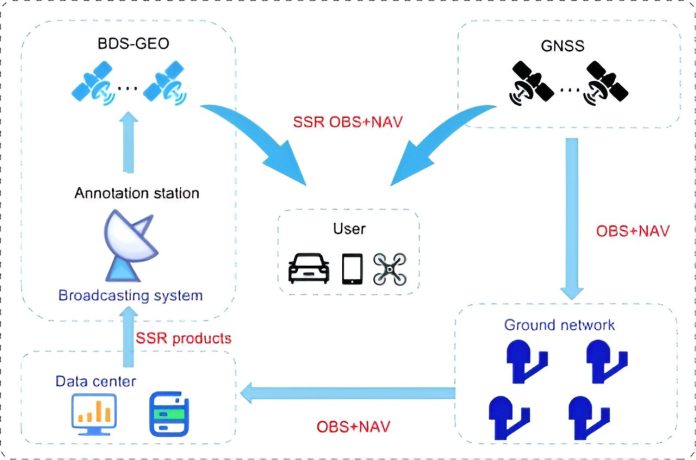
The BeiDou Navigation Satellite System (BDS) is set for a major upgrade to meet the growing need for precise location services.
This upgrade will allow BeiDou to provide decimeter-level accuracy within minutes, a significant improvement over its current capabilities.
This advancement is crucial for emerging technologies like self-driving cars, robotic navigation, and smart city infrastructure, all of which rely on precise and reliable location data to function effectively.
The rise of these technologies has led to a surge in demand for highly accurate positioning systems.
Traditional systems like the Global Positioning System (GPS), GLObal NAvigation Satellite System (GLONASS), and Galileo have set high standards, but they still face challenges like limited regional coverage and long times to achieve accurate positioning.
These issues highlight the need for better navigation satellite systems. The BeiDou system aims to tackle these challenges by improving its high-precision services, making it a key player in global positioning.
A team of researchers from the Beijing Institute of Tracking and Telecommunication Technology, the Shanghai Astronomical Observatory, and Wuhan University published a study in the journal Satellite Navigation on June 24, 2024.
The study outlines the current state, achievements, and future plans for BeiDou’s high-precision services.
The study focuses on BeiDou’s PPP-B2b service, which can achieve decimeter-level accuracy within 14 minutes. However, BeiDou’s current system lags behind international counterparts like Galileo’s High Accuracy Service (HAS) and Japan’s Quasi-Zenith Satellite System’s (QZSS) Centimeter-Level Augmentation Service (CLAS) in terms of regional coverage and time to achieve accurate positioning.
To overcome these limitations, the researchers propose a multi-layer development framework that includes integrating low Earth orbit (LEO) satellites.
By adding a constellation of 288 LEO satellites, BeiDou could improve its positioning accuracy to better than 5 cm within approximately 1 minute, enhancing global coverage and significantly reducing the time needed to achieve precise positioning.
Simulation results show that LEO-enhanced PPP services can provide rapid and precise positioning, helping BeiDou overcome current limitations and become a leader in high-precision satellite navigation.
Dr. Xingxing Li from Wuhan University stated, “The advancements in BeiDou’s high-precision services are crucial for meeting the rising demands of modern navigation applications. Integrating LEO satellites is particularly promising as it enhances coverage and reduces the time needed for precise positioning, bringing us closer to real-time, centimeter-level accuracy on a global scale.”
These enhancements have significant implications for various applications, including self-driving cars, drones, and smart device navigation. The proposed improvements in global coverage and positioning speed will enable more accurate and reliable solutions, driving innovation and efficiency in these fields.
This progress marks a significant step forward in the evolution of global navigation satellite systems, positioning BeiDou as a leader in high-precision services.



